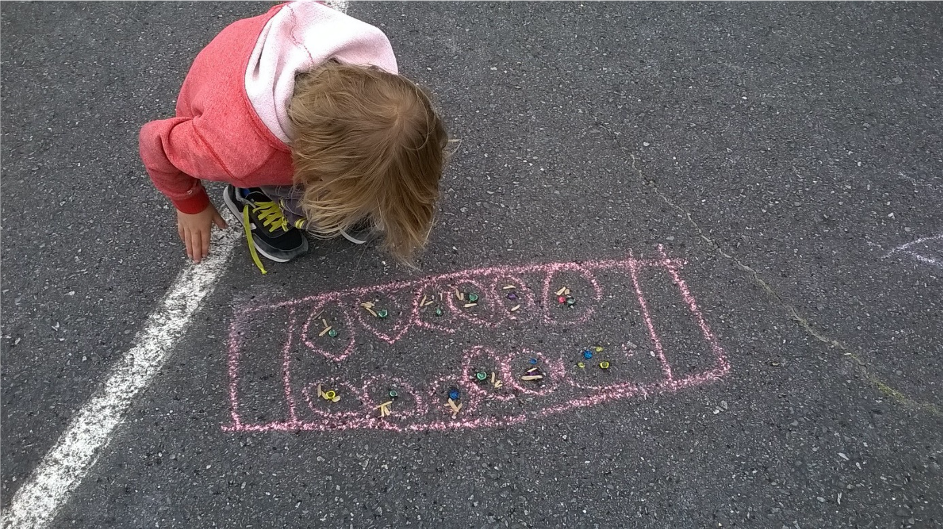
About Mancala Club
We are learning scientists and educators exploring what children and families can learn through playing Mancala, the world's oldest board game. Mancala Club started as an emergent curriculum project in John's after school program Kids Co. at South Shore 15 years ago. John was leading his after school program in a unit on strategic games and brought in some Mancala boards he bought at Goodwill. John had been playing Mancala for about 10 years and thought he was kind of an expert on it UNTIL a 3rd grader challenged him and beat him quite handily on his first turn before John even made a move! (see the first turn challenge) They figured out a way to write down his moves and after he swore John to secrecy, he shared his opening move. Sadly when the program had to move buildings, the notebook was lost. John and his students continued to play mancala over the years, experimenting with new rule sets and making up some of their own.
The memories of this fun learning journey stuck with John and when he went back to school at the University of Washington, he and two colleagues Gabriel de Los Angeles and David Phelps took a design based research class and decided to see what more they could learn by creating an after school club at a local elementary school. This was our first Mancala Club and we ran it in 2015. Since then, John and David have run Mancala Clubs both as research sites and just for fun in elementary schools and jat the Robinson Center for Young Scholar's Saturday Enrichment Classes. We look forward to publishing our work and sharing it in more accessible ways such as this one.
This website and these videos come out of what we've learned with children and families about Mancala and learning itself. With Covid, we had to stop running our Saturday Mancala Clubs at the UW Robinson Center for Young Scholars, but we don't want to stop learning and playing. We hope it will be a resource to families who are looking for fun ways to learn together and to discover learning hiding in fun. We also hope it can be a resource for teachers looking to try more expansive STEM learning in their classrooms and folks who want to start their own Mancala Clubs when it is safe to do so.
We hope you find the videos and activities here as exciting as our students did and hope you will share discoveries with us.
Happy playing!
John Benner
David Phelps
Mancala

John Benner
John Benner is an educator, learning scientist, and dad. He has loved Mancala games since a friend taught him how to play when he was in college. Since then he has shared Mancala with children in his preschool classes and K-6 after school program, and used these experiences to create Mancala Club after school enrichment classes with his colleagues David Phelps and Gabriel De Los Angeles. In addition to early learning and out of school learning, John is passionate about improving family-school relations, and works as a community-engaged researcher and consultant on family engagement. He is finishing his PhD. in Learning Sciences and Human Development at the University of Washington.
John has taken what he's learned about learning from Mancala club and created other learning environments like The Adventurer's Guild RPG Summer Camp.
John is also an Aikido instructor, a musician, and RPG nerd.
Photo of John and one of his many goodwill mancala boards.

David Phelps PhD.
David Phelps is a researcher committed to serving youth and educators by designing, facilitating and studying innovative learning environments. This passion grew from his experiences working in a Reggio-Emilia preschool in Vermont, a community school in Peru, a care farm in the Netherlands, and philosophy for children programs in the Midwest and Pacific Northwest. Over the past 10 years he has had the privilege to professionally co-design and co-facilitate a wide range of learning environments that engage youth in collective interest-driven inquiry. This strand of research champions the incredible inquiry competencies of young learners. Simultaneously, he studies how issues of power and equity are navigated at a system-wide level as educators attempt to implement and scale innovative learning environments. He received his PhD in Learning Sciences and Human Development from the University of Washington.
David is learning how to play Jiao Ti Tuong from a Mancala Club parent.